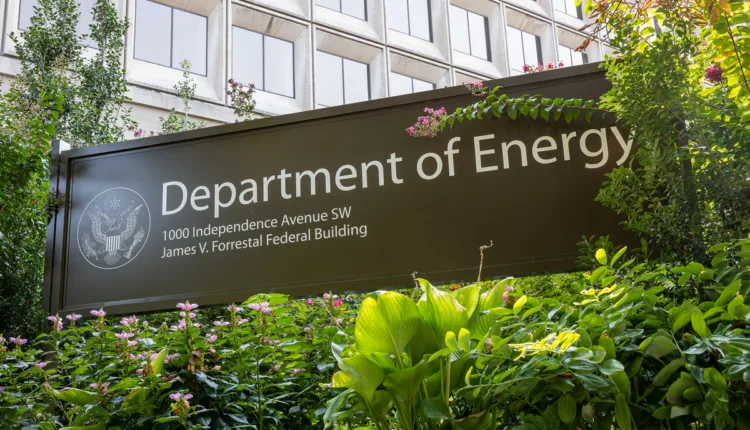
2024 DOE Focus: Hydrogen, LNG & Climate
TL/DR –
The Department of Energy (DOE) is focusing on establishing clean energy regulations and disbursing billions of dollars in grants and loans in 2024, crucial for President Joe Biden’s climate goals and re-election prospects. The 2021 bipartisan infrastructure law and Inflation Reduction Act (IRA) of 2022 have assigned the DOE with $97 billion and an extensive loan guarantee system, with the department also developing tax credits that stimulate growth in energy manufacturing. However, increasing pressure from environmental groups to reduce fossil fuels, including liquefied natural gas exports, may affect Biden’s support within the Democratic Party as he prepares for the 2024 presidential election.
The Department of Energy’s Race for Clean Energy
As President Joe Biden’s second term prospects hang in the balance, the Department of Energy (DOE) is working diligently to finalize clean energy regulations and allocate billions in grants and loans. The outcomes of these initiatives will largely influence the timeline for meeting U.S. climate goals. Furthermore, with increasing pressure from environmental groups for stronger regulation on fossil fuels, these decisions could sway President Biden’s support from the left in the 2024 election.
DOE’s main focus in 2024 is implementing the clean energy programs outlined in the 2021 bipartisan infrastructure law and the Inflation Reduction Act (IRA) of 2022. These laws granted the DOE $97 billion and numerous loan guarantees. The department is also developing the tax credits spurring significant growth in energy manufacturing.
DOE Deputy Secretary, David Turk, emphasized the importance of 2023 and 2024 for clean energy initiatives. The successful implementation of the bipartisan infrastructure law and IRA will greatly impact communities, companies, and unions.
The coming months will also be a test for the DOE’s ability to launch a $7 billion hydrogen hub program. This program aims to demonstrate commercial-scale production of the fuel across seven nationwide projects.
Government affairs adviser Laurie Purpuro highlights the pivotal shift in DOE from subsidizing early-stage research and development to becoming a significant market driver. Notably, she points to DOE’s initiatives on renewable energy supply chains and industrial decarbonization.
DOE’s Challenges: Fossil Fuel and Clean Energy Industry
However, increased U.S. oil and gas production under Biden, including a surge in liquefied natural gas exports, has environmentalists concerned. These groups argue that the increased fossil fuel production threatens both climate goals and Biden’s reelection prospects. They point to a recent Harvard University poll showing Biden struggling to maintain a 40% approval rating among voters of all ages.
Despite facing criticism, the DOE has not denied any LNG export projects under the Biden administration. This has sparked controversy among environmentalist groups accusing the administration of undermining climate change efforts.
However, the Biden administration argues that U.S. LNG exports are essential for energy reliability in Europe and reducing global coal usage, thus avoiding billions of tons of carbon emissions.
DOE’s Regulatory Climate and Efficiency Plans
The Biden administration aims to make significant climate gains through regulations on a wide range of household products and energy equipment. Over the next 30 years, DOE estimates these efficiency rules will reduce utility bills by $570 billion and prevent over 2.4 billion metric tons of greenhouse gas emissions.
DOE’s 2024 plan includes finalizing important efficiency rules and standards for gas stoves, water heaters, dishwashers, clothes dryers and washers, ceiling fans, consumer boilers, vending machines, electric motors, commercial ice makers, and other appliances.
Not everyone is in favor of these regulations. Parts of the energy industry, led by the American Gas Association, are suing DOE over a recently finalized regulation on residential gas furnaces, arguing the rule will ban certain models and increase costs for consumers.
—
Read More US Economic News
